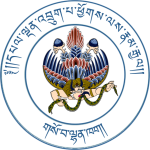About Us-DHS
Vision
- A leading change agent for equitable, quality, resilient and sustainable healthcare.
Mission
- Formulate visionary and strategic policies, guidelines and standards.
- Enhance timely evidence generation for informed decision making.
- Ensure compliance to the prescribed requirements.
- Accountability
- Honesty
- Equity
- Quality
- Client-centric
- Team spirit
- Sustainability
- Professionalism
- Selflessness
Our Values
- Professionalism: We are committed to adhering to applicable codes of conduct and upholding our core values. We strive for excellence in our abilities and expertise, maintaining honesty and accountability for our conduct at all times.
- Quality: Quality will be at the centre of everything we do. We will always aim for excellence and ensure continuous quality improvement in all our work.
- Team spirit: We will always work as a team to achieve the common goals and vision of our department. We will value and respect the opinions of our teammates and support each other.
- Client-centric: In all our activities, we will always keep the interests and needs of our clients, partners, and stakeholders in mind.
- Equity: We will always value and promote equity, basic rights, dignity, diversity and inclusiveness.
- Sustainability: We will always consider sustainability in whatever we design, plan, and implement.
Transparency is our strength
The Department of Health Services operates through four key divisions where each division is supported by dedicated teams focusing on health technology, quality standards, financing policies, and traditional medicine, ensuring the comprehensive and integrated delivery of health services to meet the needs of the nation.
Our Mandates
- Strategize, standardize, and coordinate policies and programs to provide high-quality healthcare services and ensure access to essential health products.
- Conduct assessments of technology or synthesise the literature on technology introduction, as appropriate, to inform policy decisions and the adoption of technology.
- Formulate policies, guidelines, procedures, and tools to assist and streamline the process of investment planning for the healthcare system’s development.
- Function as the central agency within the Ministry of Health to offer technical guidance on policies pertaining to healthcare services, health products, and health financing.
- Function as the central hub for initiating projects and overseeing the management and mobilisation of external resources.
- Monitor the flow of funds and resources within the health sector and periodically disseminate information through the production of National Health Accounts.
Mandates of the Divisions
Health Financing Division (HFD)
- Support and facilitate the development of investment planning for the health system.
- Review the current model and system of health financing.
- Conduct unit cost analysis for specific healthcare services and products.
- Review the health expenditure trends.
- Recommend policies, guidelines and tools for effective mobilisation and use of health resources.
- Review proposals for the fund mobilisation.
Health Intervention and Technology Assessment Division (HITAD)
- Lead the development of resilient, equitable and people-centered healthcare services and access to safe, effective and quality health technologies in the country.
- Ensure access to quality healthcare services on an equitable, accessible and affordable basis.
- Formulate, plan, standardize and coordinate policies and programs for the delivery of quality healthcare services and access to essential medical products.
- Ensure appropriate selection, management and use of quality medical products for sustainable delivery of services.
- Carry out technology assessment or synthesis of literature on technology introduction for guiding policy action and technology adoption.
- Act as a nodal agency in the Ministry for matters related to health technologies.
Health Services Quality Assurance Division (HSQAD)
- Promote quality culture or institute effective QMS in healthcare centres for optimal healthcare service delivery.
- Evaluate or audit QMS in healthcare centres and provide appropriate recommendations for CQI.
- Develop and implement quality-related standards, guidelines, and policies, as well as facilitate healthcare centre accreditation and certification.
- Plan, execute, and publish quality-related research for broader dissemination.
- Evaluate the impact of healthcare-related programmes on the delivery of quality healthcare services and recommend appropriate actions, if required.
- Enhance the quality-related knowledge and competence of healthcare personnel.
Traditional Medicine Division (TMD)
- Design and develop policies, and ethical and professional standards for the quality of service of traditional health care services.
- Strengthen research for evidence-based traditional medicine services.
- Develop HR capacity for efficient and effective TM services.
- Enrich TM through research on local and spiritual healing practices.
- Preserve and promote the Bhutanese ancient medical art of healing.
- Promote the conservation of medicinal resources.
Address
- Ministry of Health
- Kawang Jangsa
- Thimphu, Bhutan
- Post Box : 726
- info@health.gov.bt

